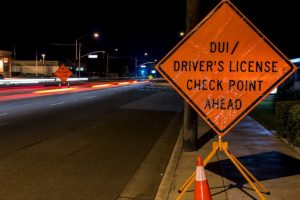 In Pennsylvania, a DUI checkpoint is a marked, stationary roadblock conducted by law enforcement for several hours at a time. The police officers on the scene of a checkpoint use a predetermined standard in deciding which cars to stop and check for driver intoxication. Sometimes, those who are arrested on a first-time DUI offense at a checkpoint are released on their own recognizance (OR), but other cases will require a Luzerne County bail bond for the offender to be released from jail.
In Pennsylvania, a DUI checkpoint is a marked, stationary roadblock conducted by law enforcement for several hours at a time. The police officers on the scene of a checkpoint use a predetermined standard in deciding which cars to stop and check for driver intoxication. Sometimes, those who are arrested on a first-time DUI offense at a checkpoint are released on their own recognizance (OR), but other cases will require a Luzerne County bail bond for the offender to be released from jail.
The use of DUI checkpoints in Pennsylvania has become controversial. While those in favor of checkpoints consider the stops to be deterrents to drunk driving, others believe that roadblocks intrude upon a person’s constitutional rights. However, a DUI roadblock is indeed considered constitutional so long as it meets the following requirements:
- Nondiscriminatory methods of stopping cars must be used at DUI checkpoints. Officers can stop every car, every other car, every fourth car, etc. But, whatever method chosen for stopping cars must be nondiscriminatory against the drivers.
- The stop must be brief and it cannot include a search of the vehicle or its occupants (unless if officers find probable cause to do so).
- Police must give advance notice of a checkpoint in the form of road signs or notices through the media.
- The time and location of the roadblock must be based on a history of drunk driving offenses in that area.

